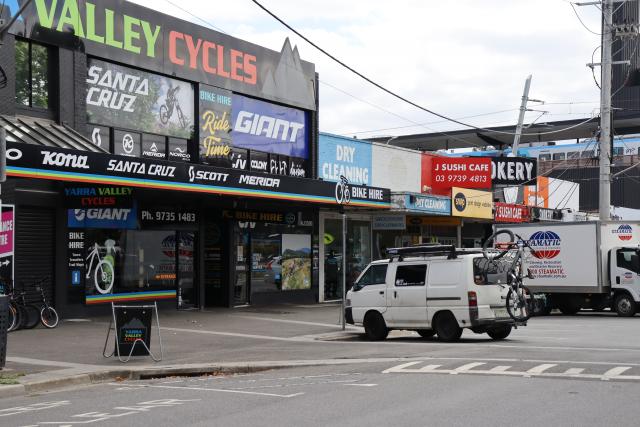
By Mikayla van Loon
After devastating floods hit the Yarra Ranges in October last year, many stated they’d never seen anything like it but as more frequent natural disaster events happen, planning is more important than ever.
A new survey of small businesses by the Australian Small Business and Family Enterprise Ombudsman, Bruce Billson, found only one in four small businesses have a plan in place for continuity after a natural disaster.
“In the aftermath of natural disasters, we typically see massive and heartbreaking clean-up efforts, a lengthy and hard-going recovery, questions asked about how small and family businesses and the communities they are a part of and service will bounce back and what, if anything, could have been done to better prepare,” Mr Billson said.
Having been asked by the Australian government last year in the wake of bushfires, drought, floods and the pandemic to conduct an inquiry into how businesses prepare for such instances, the Ombudsman visited 36 communities across Australia and received 2000 responses online.
“It is clear from our work that preparation is key to small and family businesses building resilience and coming through natural disasters in the best possible shape,” Mr Bilson said.
“It is equally clear that small and family business owners cannot do this on their own and require clarity and certainty of the support available.
“As a country we put an enormous amount of effort and resources into the clean-up. Some 97 per cent of money spent by governments on disasters is after the event and only three per cent is on preparedness.”
For Smoothline Dry Cleaning manager Rachelle, the assessment from the insurance company indicated the shop had 16 inches of water come into it, destroying stock and swelling the front counters.
“We’re used to water because we are dry cleaners, so we’ve always got water around but we’re now more vigilant about having everything off the floor,” she said.
“We lost all our stock. We lost everything. Everything that we use in the business, hangers, plastics, everything was gone.
“We’ve changed the way we’re storing everything in our store. So we are prepared if it were to come again.”
While the damage was relatively small in the scheme of things, Rachelle said the business owner Lisa is still trying to claim repairs on insurance.
“Compared to a lot of the other businesses we’ve recovered quite well. We were only closed for two days, which was a blessing but we’re still waiting for things to be fixed up by insurance, our floors still aren’t fixed and we’re waiting for new counters,” Rachelle said.
Unfortunately the survey revealed many small businesses face similar hardship when it comes to finding affordable insurance and making claims.
In the neighbouring business, Yarra Valley Cycles, head of sales Damian said they were lucky in the sense that only the workshop and lower sections of the shop were affected by four or five inches of water.
But it still equated to around $30,000 of stock damage and around $100,000 of structural damage, having to rip up flooring, something they never expected to experience in Lilydale.
With 98 per cent of businesses in the Yarra Ranges being small businesses and 13,965 businesses employing between zero and 19 staff, Mayor Jim Child said supporting these proprietors is essential to a thriving community.
“Yarra Ranges Council is committed to the safety and resilience of local businesses in the face of natural disasters and encourages all businesses to prepare for any unexpected events that may arise,” he said.
“As we’ve seen in the last few years the disasters our region has experienced aren’t always fire and flood related.”
The Ombudsman’s report found that all levels of government and business communities have to work together to ensure small and family business owners have all the information and support they need to manage risks in the future.
Mayor Child said post the 2021 storm event and the 2022 flooding, the council was committed to providing the support and links businesses owners needed, something it plans to continue.
“In light of the past few years, our Economic Development department is looking to facilitate a series of forums and workshops for local businesses and industry groups, covering topics of economic recovery, resilience, employment, and disaster management,” he said.
“The focus of these sessions is to offer constructive advice to support business recovery as well as tools for future crisis planning.”
One thing that came from the floods in October was a sense of community between business owners and staff, as each one offered to help the other during a challenging few days.
“We were lucky. Yarra Valley Cycles helped every shop. Without those boys I don’t reckon half the shops would have been open as fast as what they were,” Rachelle said.
“What became abundantly clear during our inquiry is that a strong sense of community connectedness, including collegiate business relationships – what we have called ‘socio-commercial capital’ – leads to more resilient and unified communities that learn from and support each other to work together to prepare for, and respond to, natural disasters,” Mr Bilson said.
The Small Business Natural Disaster Preparedness and Resilience Inquiry report is available at www.asbfeo.gov.au where there are also checklists and resources to help small business prepare for a disaster and, if needed, to recover after one.






